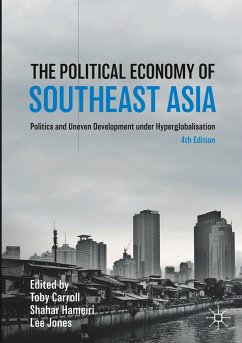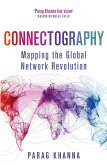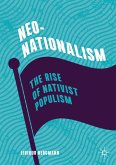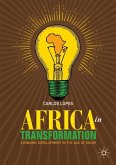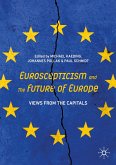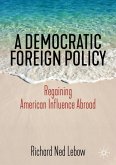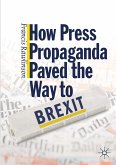"This is not only the best collection of essays on the political economy of Southeast Asia, but also, as a singular achievement of the "Murdoch School", one of the rarest of books that demonstrates how knowledge production travels across generations, institutions and time periods, thereby continually enriching itself. No course on Southeast Asia can afford to miss it as its core text." (Professor Amitav Acharya, American University, USA)
"This book - the fourth in a path-breaking series - demonstrates why a critical political economy approach is more crucial than ever for understanding Southeast Asia's transformation. Across a wide range of topics, the book explains how capitalist development and globalisation are reshaping the societies, economies and politics of a diverse group of countries, casting light on the deep sources of economic and social power in the region. This is a book that every student of Southeast Asia needs to read." (Professor Edward Aspinall, Australian National University, Australia)
"This book does what a work on political economy should do: challenge existing paradigms in order to gain a deeper understanding of the processes of social transformation. This volume is distinctive in three ways. First, it eschews methodological nationalism and focuses on how the interaction of national, regional, and global forces are shaping and reshaping systems of governance, mass politics, economies, labor-capital relations, migration, and gender relations across the region. Second, it is a bold effort to show how the "Murdoch School," which focuses on the dynamic synergy of internal class relations and global capitalism, provides a better explanatory framework for understanding social change in Southeast Asia than the rival "developmental state" and "historical institutionalist" approaches. Third, alongside established luminaries in the field, it showcases the younger generation of political economists doing pathbreaking work on different dimensions of the political economy of the region." (Walden Bello, State University of New York at Binghamton, USA, and Former Member of the Philippines' House of Representatives)
"This very timely fourth edition explores Southeast Asia's political economy within the context of hyperglobalisation and China's pronounced social-structural impacts on international politics, finance and economics over the past decade and a half. The volume successfully adopts a cross-cutting thematic approach, while also conveying the diversity and divergences among the Southeast Asian states and economies. This will be an important resource for scholars of International Relations and Comparative Politics, who need to take an interest in a dynamic and increasingly significant part of Asia." (Professor Evelyn Goh, Australian National University, Australia)
"This ambitious collection takes a consistent theoretical approach and applies it to a thematic, comparative analysis across Southeast Asia. The yield is impressive: the social, political and economic forces constituting the current conjuncture are not simply invoked, they are thoroughly identified and explained. By posing the deceptively simple questions of what is happening and why, the authors demonstrate the reciprocal relation between theory-building and empirical inquiry, providing a model of engaged scholarship with global resonance. Bravo!" (Professor Tania Li, University of Toronto, Canada)
"Counteracting the spaceless and flattened geography of much literature on uneven development, this book delivers a forensic examination of the unevenness of geographical development in Southeast Asia and the relations of force shaping capital, state, nature and civil society. This is the most compelling theoretical and empirical political economy book available on Southeast Asia." (Professor Adam David Morton, University of Sydney, Australia)
"A vital book for all scholars, students and practitionersc
"This book - the fourth in a path-breaking series - demonstrates why a critical political economy approach is more crucial than ever for understanding Southeast Asia's transformation. Across a wide range of topics, the book explains how capitalist development and globalisation are reshaping the societies, economies and politics of a diverse group of countries, casting light on the deep sources of economic and social power in the region. This is a book that every student of Southeast Asia needs to read." (Professor Edward Aspinall, Australian National University, Australia)
"This book does what a work on political economy should do: challenge existing paradigms in order to gain a deeper understanding of the processes of social transformation. This volume is distinctive in three ways. First, it eschews methodological nationalism and focuses on how the interaction of national, regional, and global forces are shaping and reshaping systems of governance, mass politics, economies, labor-capital relations, migration, and gender relations across the region. Second, it is a bold effort to show how the "Murdoch School," which focuses on the dynamic synergy of internal class relations and global capitalism, provides a better explanatory framework for understanding social change in Southeast Asia than the rival "developmental state" and "historical institutionalist" approaches. Third, alongside established luminaries in the field, it showcases the younger generation of political economists doing pathbreaking work on different dimensions of the political economy of the region." (Walden Bello, State University of New York at Binghamton, USA, and Former Member of the Philippines' House of Representatives)
"This very timely fourth edition explores Southeast Asia's political economy within the context of hyperglobalisation and China's pronounced social-structural impacts on international politics, finance and economics over the past decade and a half. The volume successfully adopts a cross-cutting thematic approach, while also conveying the diversity and divergences among the Southeast Asian states and economies. This will be an important resource for scholars of International Relations and Comparative Politics, who need to take an interest in a dynamic and increasingly significant part of Asia." (Professor Evelyn Goh, Australian National University, Australia)
"This ambitious collection takes a consistent theoretical approach and applies it to a thematic, comparative analysis across Southeast Asia. The yield is impressive: the social, political and economic forces constituting the current conjuncture are not simply invoked, they are thoroughly identified and explained. By posing the deceptively simple questions of what is happening and why, the authors demonstrate the reciprocal relation between theory-building and empirical inquiry, providing a model of engaged scholarship with global resonance. Bravo!" (Professor Tania Li, University of Toronto, Canada)
"Counteracting the spaceless and flattened geography of much literature on uneven development, this book delivers a forensic examination of the unevenness of geographical development in Southeast Asia and the relations of force shaping capital, state, nature and civil society. This is the most compelling theoretical and empirical political economy book available on Southeast Asia." (Professor Adam David Morton, University of Sydney, Australia)
"A vital book for all scholars, students and practitionersc
"This volume is a set of technically well-executed research that may be hamstrung by the critical biases their unique approach has brought bare. This could be used as a staging point for further critical examination of the region, especially for students of political economy and of Southeast Asia." (Gerardo V. Eusebio, Philippine Political Science Journal, Vol. 44 (2), August, 2023)
"The volume as a whole provides the best and most current introduction to the region ... . the thematic approach makes the volume flexible and easily adaptable for classroom use. ... The Murdoch School lives on, and prospers, in the hands of a largely new generation of scholars." (Paul Cammack, Journal of Contemporary Asia, October 21, 2020)
"The volume as a whole provides the best and most current introduction to the region ... . the thematic approach makes the volume flexible and easily adaptable for classroom use. ... The Murdoch School lives on, and prospers, in the hands of a largely new generation of scholars." (Paul Cammack, Journal of Contemporary Asia, October 21, 2020)

